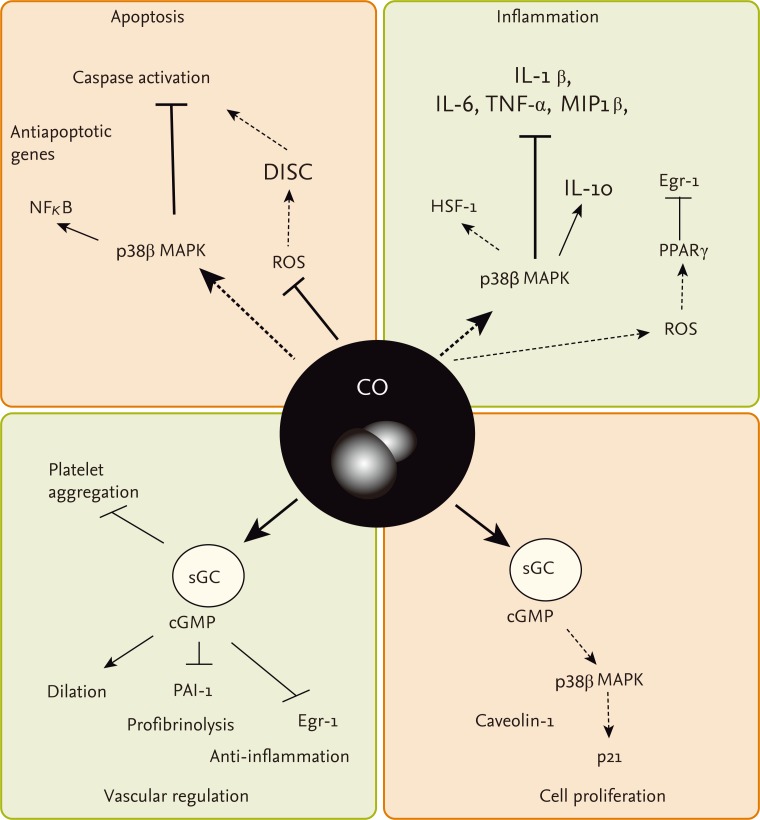Figure 2.
Signaling pathways regulated by carbon monoxide (CO). CO can confer modulatory effects on the regulation of vascular function, inflammation, apoptosis, and cell proliferation, through stimulation of several signaling pathways. The sGC/cGMP axis has been implicated in vascular effects of CO with respect to vessel dilation, regulation of platelet aggregation, and regulation of fibrinolysis through PAI-1. The sGC/cGMP axis has also been implicated in downregulation of cell proliferation by CO, through upregulation of p38 mitogen activated protein kinase (MAPK) and p21Waf1/CIP1. Anti-inflammatory and antiapoptotic effects of CO, including downregulation of proinflammatory cytokines production are also thought to be mediated by p38 MAPK. Additional mechanisms involving the inhibition of cytosolic reactive oxygen species (ROS) may play a role in regulation of apoptosis through inhibiting death-inducing signal complex (DISC) formation. Stimulation of mitochondrial ROS may upregulate PPARγ leading to downregulation of the proinflammatory factor Egr-1. Additional signaling molecules such as heat shock factor-1 (HSF-1) and caveolin-1 have been shown to mediate the anti-inflammatory and antiproliferative effects of CO, respectively. IL, interleukin; TNF, tumor necrosis factor; MIP1, macrophage inflammatory protein 1; NF-κB, nuclear factor kappa-B; Egr, early growth response; PPAR, peroxisome proliferator-activated receptor; sGC, soluble guanylate cyclase; cGMP, cyclic guanosine monophosphate.

